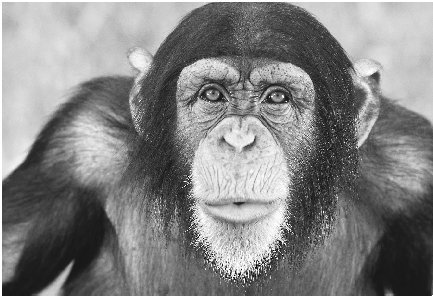Epilogue
Genetics and the Definition of "Human"

The genetic revolution holds out great promise in medicine and many other fields. At the beginning of the twenty-first century, rapid advances in this relatively new science have put within humanity's grasp the ability to cure or prevent previously incurable diseases. The hope also exists of ending world hunger through the use of high-yield bioengineered food crops. But, despite all the positive aspects, genetic engineering raises some troubling questions that both experts and laymen will have to confront in the years immediately ahead. One of these questions may even entail a radical redefinition of what it means to be a human being, challenging some of our most deeply held philosophical and religious beliefs.
Designer Babies
Few people would dispute the benefits of a genetic procedure that could replace a gene that causes a horrific disease with a healthy version of the gene, even if the replacement was done on a fetus. It would spare the child great suffering and provide the chance to lead a normal life. But that same procedure could be used to enhance traits that are not classified as diseases. Parents could choose, for example, to give their unborn child blond hair rather than brown, blue eyes rather than green. They could opt to introduce or modify genes that would make the child taller and more muscular than the genes the child inherited naturally. The parents could also be tempted to alter genes to make the child more intelligent and more aggressive, and hence more likely to succeed in life.
A poll conducted by Time magazine reveals that 46 percent of parents in America would chose favorable traits for their children if the opportunity was available. Of those, 33 percent said intelligence would be the trait they would be most interested in enhancing; 11 percent said they would like the chance to choose the sex of their baby. Alarmingly, in another

The debate must take into account the fact of economic disparity. The new genetic technologies will be expensive, so only the rich will be able to afford them. Science writer Colin Tudge says:
Human beings in the future will practice cloning and will manipulate the genomes of their offspring to the point where they will, in effect, produce a new stratum of society. These will be the "Genrich" people, as opposed to the rest of us who are content (or stuck) with the genes we inherited by normal means. . . . The Genrich might eventually evolve into a new species: able to mate successfully with each other but not with the [genetically] unmanipulated. 43
Of course, it is not now possible to manipulate genes on the intricate level that Tudge envisions. Intelligence, for example, is believed to result from the interaction of more than a hundred different genes and the further interaction of that genetic makeup with the environment in which a child is raised. But experts are virtually unanimous that the complexities will someday be overcome—perhaps before the end of the current century.
Eugenics
It is not the first time that human beings have tried to alter human nature. Just as farmers have attempted since the beginning of civilization to produce better livestock through selective breeding, there have at times erupted social movements to improve the human race through a process called eugenics. The term eugenics was coined in the nineteenth century, based on ancient Greek words that mean "well-born." This widespread social movement encouraged well-educated, affluent people to reproduce and discouraged those less privileged from doing so. The goal was to make the human race stronger, healthier, and more intelligent.
Eugenics presented its most gruesome face in Nazi Germany in the 1930s and 1940s, when the ruling party implemented policies to eradicate entire populations deemed to be undesirable, especially Jews, and to foster the growth of an ideal type of human being. But eugenics did not take root only in countries gripped by such a monstrous ideology; it found a welcoming home in Great Britain and the United States as well. By the early 1930s, thirty American states had enacted involuntary sterilization laws, designed to make it impossible for criminals and the mentally ill to reproduce. People with genetically transmittable diseases were also targeted.
With the stunning advances in genetic engineering, future eugenics programs would no longer be limited to the version of selective breeding advocated in the 1930s and 1940s. Now, science is on the verge of being able to test for desirable (and undesirable) traits using the much more far-reaching tools of genetic analysis. It is also on the point of being able to alter these traits while babies are still in the womb.
Who Gets to Choose?
Many observers are, understandably, troubled by the possibilities of a society controlled at the genetic level. The fear is that if the technology is available, it will be used by those who have access to it. This gives rise to two different sorts of problems. First, how can the public ever be sure that the manipulation of genes will be free from error? How can people guard against monstrous mistakes? What if, in an attempt to enhance the genes responsible for intelligence, scientists mistakenly create a whole new class of diseases? Such a tragic eventuality may not become apparent until the gene-altering procedure has been in use for decades. "In modern science as in ancient agriculture, the underlying theory, however coherent and satisfying, may not underpin the resulting technology as seems to be the case," Tudge says. "So the success of the resulting technology does not and cannot demonstrate that the underlying theory is correct and adequate in every respect. The theory must have been good enough to succeed in the particular case that was observed, but if the conditions were changed somewhat, inadequacies could well be revealed." 44
Second, even if we do master the technology, which forces in society will determine who gets to benefit from it and who does not? The example of Nazi Germany makes most commentators reluctant to invest this authority in a political regime. But allowing the market forces of free enterprise to decide this important issue is, to some, equally unsatisfactory because those forces are biased in favor of the wealthy.
Without regulation, the poor tend to get left behind. Even if regulations were adopted to limit, or even ban altogether, the production of designer babies, people who wanted to profit by providing the technology and those wanting to benefit from it would find other options. Businesses involved in human cloning and the manipulation of the human genome could simply go underground or move to countries where regulations are not in force.
Human Nature
On a fundamental level, the genetic revolution has challenged the very notion of what it is to be a human being. Until the eruption of genetic engineering techniques in the late twentieth century, it was not possible to blend the genes of one species with those of another. When pigs mated, they gave birth to pigs; when humans mated they produced other human beings. Species lines have now become blurred.
It is possible to transplant pig genes into ailing humans to produce a protein in which the human was deficient. The technology promises to save lives and diminish suffering. But if a pig-to-human gene transposition is possible, so is the transfer of human genes into, say, our nearest genetic relative, the chimpanzee. Chimps are already highly intelligent creatures: Even without human intervention, they learn from each other and even have primitive cultures. What if a scientist transplanted the genes that

Conversely, what if the genes that give cheetahs their speed and stamina were implanted into humans. The result would be a human-cheetah hybrid, a creature that was not fully a cheetah, but not fully a human either. Genetic engineering gives people the capacity to leap species barriers, with the consequence that the concept of humanity would have to change. "If we take the new technologies to their ultimate conclusion . . . then we will end up redesigning humanity," Tudge says. "Human beings, as we know them, will be superseded." 45
Genetics is transforming the way in which people look at the world and at themselves. Never before have humans had the ability to intervene in the processes of life at such a basic level. The benefits, such as feeding the hungry and fighting disease, are obvious. The dangers—increased social inequality and maybe even the creation of a new species that will be stronger, smarter, healthier, and longer-lived than human beings—are equally apparent. The Age of Genetics is full of both promise and peril.
Brilliant information and statistics displayed and very easy to understand.
Thankyou!
-El, 16 AUS
Could you tell me who the author is? I cannot find the author's name here.
Thankyou,
Ellen.